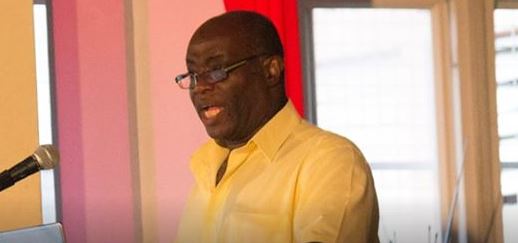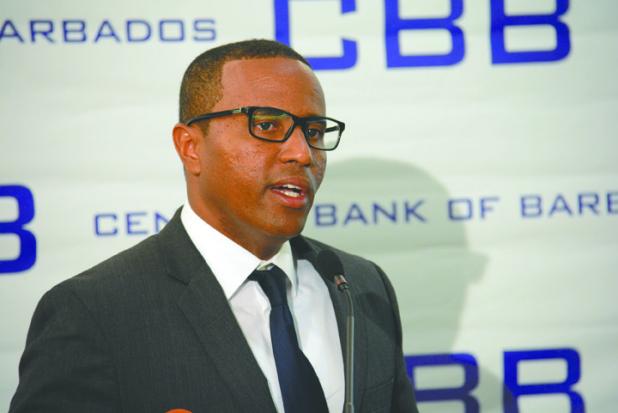
The current Government is an abject failure. Barbados is hurting and things are falling apart! The preceding simple sentence prompts many questions as to how and why; and triggers assertions extending from individual competence to the heartlessness of the representatives. To save face, some will postulate that if there was no global recession, and if David Thompson had survived the terminal conditions of cancer and CLICO, Barbados would be saved from the appalling combination of Freundel Stuart and Christopher Sinckler. Of course, to think in terms of counterfactuals is often an extravagance stepping into the realm of speculation. However, it is indisputable that few solutions have emerged from the Democratic Labour Party (DLP) to inspire a nation gripped in prolonged turmoil and a feverish industrial relations climate.
Barbados is truly facing numerous and tough challenges without active prime ministerial leadership. Several things that are wrong with the economy and society can be placed on the wilting shoulders of Prime Minister Stuart and his clueless DLP Cabinet. Yet, thousands of Barbadians have cowered to subtle taunts and threats such as cracking heads and shooting people. There are others afraid to expose the DLP’s infractions for fear of being labelled enemies of the state. Is it not true that numerous DLP’s actions have served as disincentives for Barbadians desirous of obtaining higher level education, and improving their lives and job prospects? Barbadians fretted and cussed much to their chagrin; but otherwise stood still on the DLP’s deceptions. Today the workers walk and march with purposeful regularity.
In 2017, Barbados is pitted with increasing signs of social instability. The island is being thrashed by the high incidences of gun violence and crimes against the individual. Our residences and private property are in as much danger as the ATMs and our unsafe streets. Economically, the island is already cringing from the recently implemented budget measures. Years of increasing draconian taxes implemented by the DLP since 2008 have taken their toll and caused national pain and suffering. These DLP-imposed taxes are culminating in ruptures. In most spheres of activity, the NSRL for example, is set to ruin many livelihoods. Poorly thought out policies by the Cabinet are severely crippling the poor and wiping out a once sizeable group of middle-income earners – now labelled the ‘working poor’.
The social democratization of Barbados gained energy in the aftermath of the labour uprising in 1937. The dedication of workers and the dynamism of labour unions became cornerstones in Barbados’ development. Politics and labour activism often combined to provide sound leadership in both government and civil society. These facets managed to shape a prized standard of living and good quality of life in Barbados. Workers remained industrious; labour unions demonstrated commitment to the national interest which was defined by political representation functioning in conjunction with the voice of the masses. Political leaders were seldom ruffled to the point of contemptuously ignoring the workers’ pleas or well-being.
By the early 1990s, the representatives of the Government, joined by employers’ and labour representatives formalized their relationships in an institution promising cooperation and actions predicated on ‘saving’ Barbados and safeguarding Barbadians. The Social Partnership became an indigenous mechanism that was responsive to the administration’s policy options, capital’s demands, and the workers’ input to national development. Generally, sacrifices came from all sides and issues were flogged and agreements were reached (e.g. The Protocols).
Fast forward to 2017, and the trade unions are constantly being ill-treated or ignored by the DLP-led administration. Workers across Barbados have tolerated verbal and sublime attacks mostly from Cabinet Ministers who were quick to kick away the ladders upon which they had climbed. Aided and abetted by some from within the private sector, workers’ rights have been habitually trampled. Whether it is their ways of life, conditions of work, salaries, or hard-won entitlements, most workers have fallen on hard and burdensome times. Workers are compelled by the Finance Minister to continue counting their losses. International Relations scholar Robert Jervis contends that “psychologically, losses hurt more than gains gratify.” Today, the unions are earnestly crying out for the Government’s ears and consideration.
Although the leaderships of the multiple trade unions have attracted criticisms and have been touted as being immature, they have conceded on delicate points. Previously, they may have halted work. Noteworthy is that in the same way Prime Minister Stuart as Chairman of the Social Partnership has been slothful in getting the partners together on a regular basis, the trade unions have been slow and sluggish in resorting to industrial protest actions. Trade union leadership remains persistent and responsible; the leadership is clear that it must be heard and respected. Even against low-keyed protests, still it is deafening that audience from Prime Minister Stuart is not forthcoming. Stuart’s current ‘pappy show’ matches his normal pattern of deferment.
The Social Partnership, through Protocol VI was agreed under Prime Minister Stuart. It invited meaningful dialogue to occur, including talk on the reversal of burdensome and crippling taxes such as those announced on May 30th by Finance Minister Sinckler. The formal document states that the representatives of the Social Partnership: “RECOMMIT themselves to a formal structure to govern their continued collaboration and consultation on fundamental issues affecting their individual and collective contributions to all aspects of national development.” Why should the chairmanship of the Social Partnership be averse to now meeting with the trade unions’ representatives at their request?
It certainly cannot be the case that dialogue comes after the awful 2017 Budget. On September 17, 1991 during the House of Assembly Debates, Owen Arthur advised that: “It becomes critical that if anything is to be salvaged … the Government has not just to consult after the fact, but involve persons who own enterprises and owners of capital directly and up front and in a serious way in devising the policies and programmes that will make the difference for the future.” To this piece of advice, labour representatives ought to be also welcomed by the Prime Minister and, their suggestions considered in good faith as policy alternatives.
The fact is, Prime Minister Stuart is unnecessarily grandstanding. This Stuart-led Government has recklessly failed to inspire meaningful dialogue with its partners. Ironically, the private sector has charged Stuart and Government with entrenched despondence to collaboration. Why else would the trade unions and the Barbados Private Sector Association call last Friday on all Barbadians to participate in a march? Perhaps, the huge contradiction is that Freundel Stuart is the ‘productivity champion’ in Barbados.
These conundrums bring back memory of Arthur’s labelling the 1991 economic period of intense fiasco as a ‘midsummer’s madness’. Sadly, the credibility of this current executive is in tatters. Trust between the governing and governed is trampled by Stuart’s foot-dragging for collaboration. Prime Minister Stuart does not appear to have the brawn to engage persons and groups outside of his comforted remit (e.g. DLP branch meetings and visitors to the island attending his receptions). Moreover, this DLP’s pauperizing performances have not matched the expectations of countless Barbadians.
Oppositional forces are coming from everywhere sensing the widening gap between the Government’s ability to deliver public goods and services in satisfactory ways, and Stuart’s stubborn unwillingness for dialogue. As many as seven different groupings have expressed intent to purge the DLP of its inertia. In the eyes and in the hearts of a growing plurality of Barbados’ citizens and residents, the DLP’s legitimacy to govern has waned and a new mandate is necessary. In 1991 Owen Arthur concluded that the DLP “stands to go down in infamy as the greatest anti-worker, anti-people party in the history” of Barbados. Things are falling apart!






The blogmaster invites you to join the discussion.